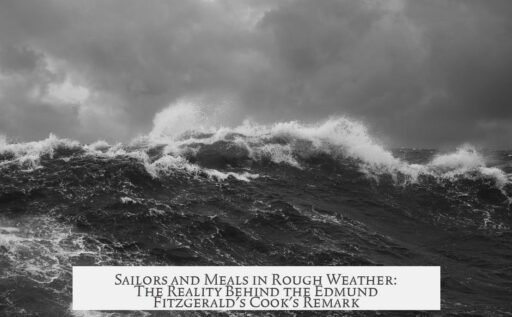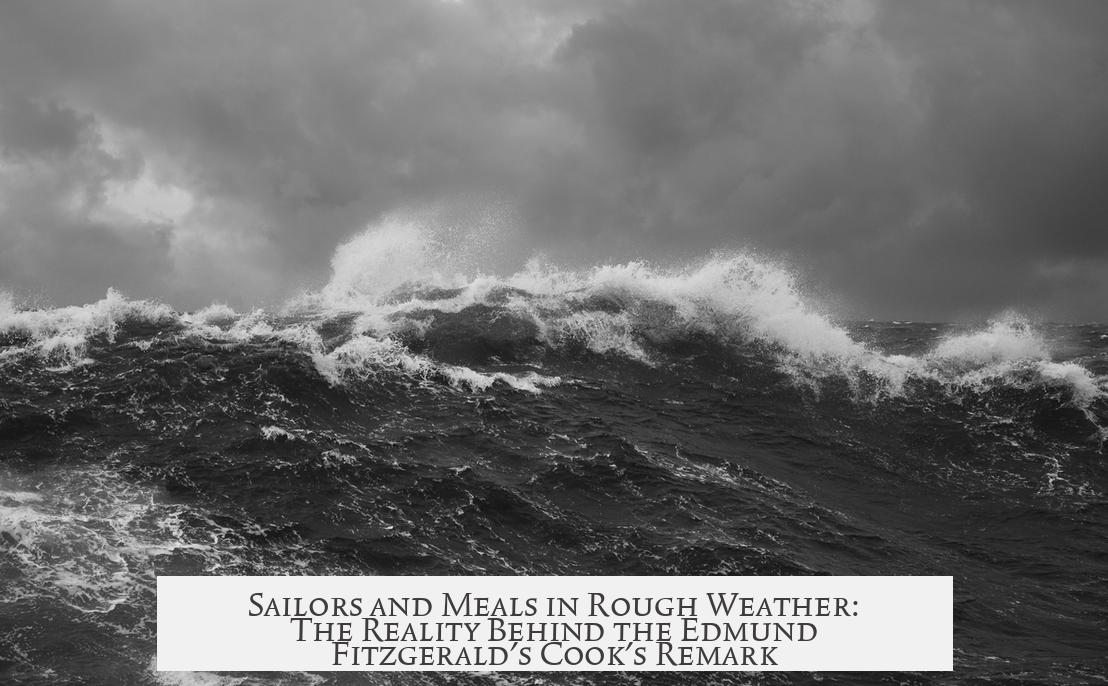In the song “The Wreck of the Edmund Fitzgerald,” the lyric “the old cook came on deck sayin’ ‘Fellas, it’s too rough to feed ya’” reflects the cook’s real difficulty preparing meals during severe weather, not a refusal to provide food to the crew.
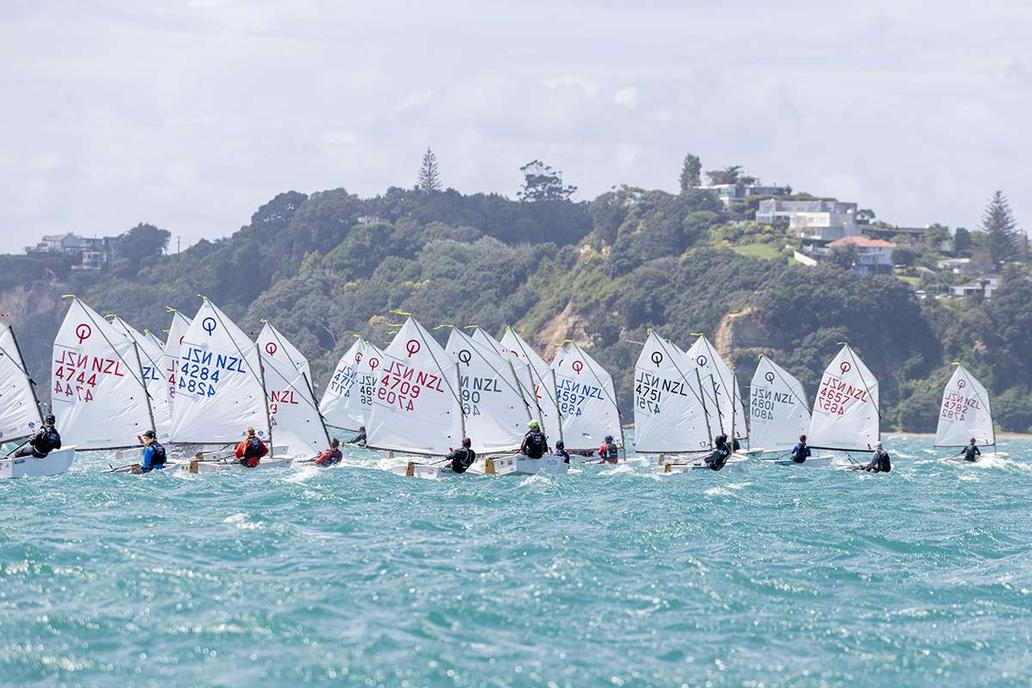
When seas grow rough, the physical challenges of cooking onboard become critical. Ships pitch and roll violently, making it nearly impossible to handle pots, pans, or cups safely. Water in pots spills easily, pans slide uncontrollably across stoves, and food or liquids can become airborne hazards.
In such conditions, the cook’s role becomes very hazardous. As the ship moves unpredictably, holding any vessel steady on a stove is tough. Even tasks like pouring coffee or serving cereal pose a risk, with contents splashing or flying about. It’s not a matter of denying meals but rather the inability to prepare and serve food reliably at that moment.

Life aboard a ship in rough weather is challenging beyond the galley. Crew members often must brace themselves in showers or sleep in ways that prevent falling out of bed. The physical strain of continual movement can be intense, comparable to constant motion up and down several floors.
Ships try to mitigate rolling using technologies like ballast adjustments or course changes, but such systems are rare on commercial freighters like the Edmund Fitzgerald due to costs. This makes cooking and other daily tasks difficult during storms.
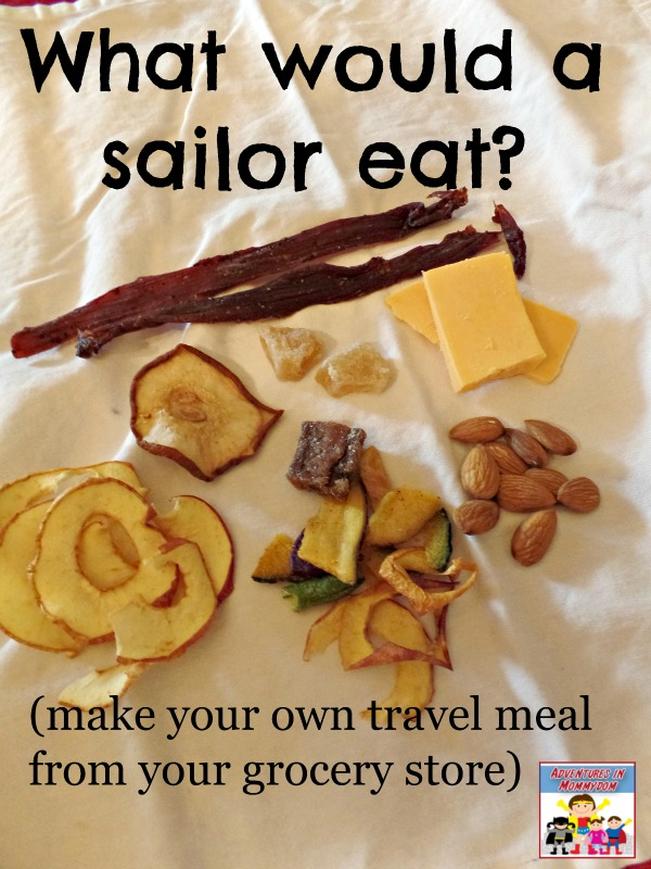
| Aspect | Impact During Rough Weather |
|---|---|
| Meal Preparation | Unsafe and difficult to cook or serve food |
| Safety | Risk of injury from moving equipment and hot items |
| Food Access | Not denied, but delayed or limited by conditions |
| Physical Stability | Must brace or secure oneself continuously |
This lyric captures a realistic maritime challenge rather than a punitive action. It indicates that, in violent seas, even basic tasks like feeding the crew become complicated or temporarily unmanageable.
- The cook’s message means meals cannot be safely prepared in rough seas.
- Food is not withheld as punishment, just delayed by conditions.
- Rough seas cause physical instability making cooking hazardous.
- Ship design and technology only partly reduce these challenges.
The Old Cook Came on Deck Saying “Fellas, It’s Too Rough to Feed Ya”: Would Sailors Really Be Denied Food During Rough Weather?

If you’ve ever listened to “The Wreck of the Edmund Fitzgerald,” the haunting line “the old cook came on deck sayin’ ‘Fellas, it’s too rough to feed ya’” sparks curiosity, right? Did sailors actually get denied meals when the waves turned wild? The short and direct answer is: no, sailors were not denied food during rough weather. The cook was simply telling the crew that preparing meals was physically impossible at that moment.
Let’s unpack that—because life at sea during a storm is a tough business, far beyond what landlubbers imagine.
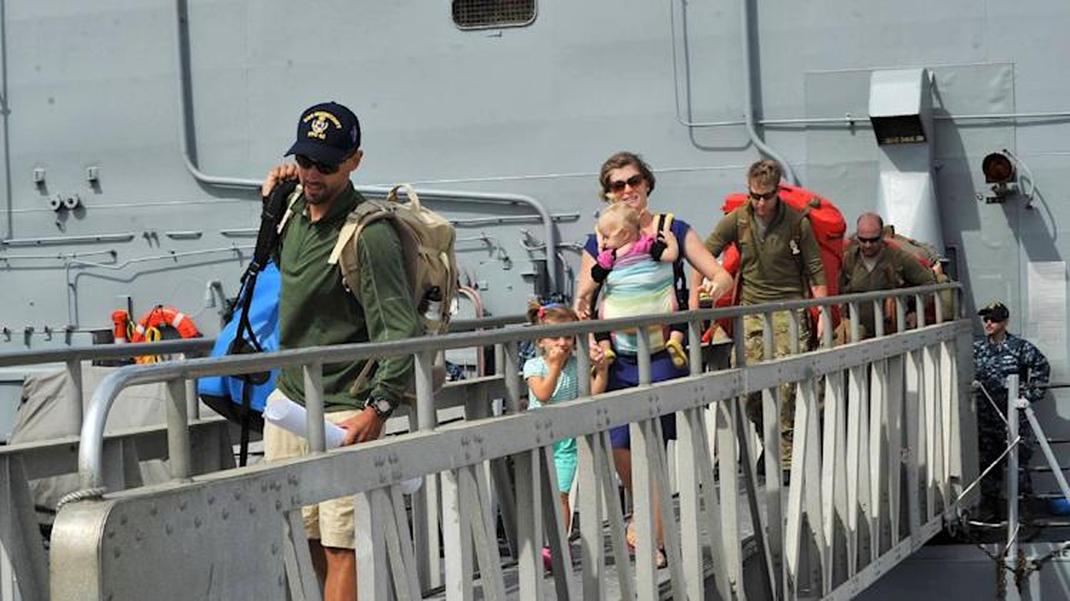
What the Cook’s Statement Really Means
When the cook says, “It’s too rough to feed ya,” he’s not claiming a cruel ration or punishment. Instead, he’s giving a practical heads-up. In those conditions, cooking turns into a chaos-filled nightmare. The cook can’t safely or effectively prepare food, not because he’s stingy, but because the sea is tossing the ship like a bottle in a washing machine.
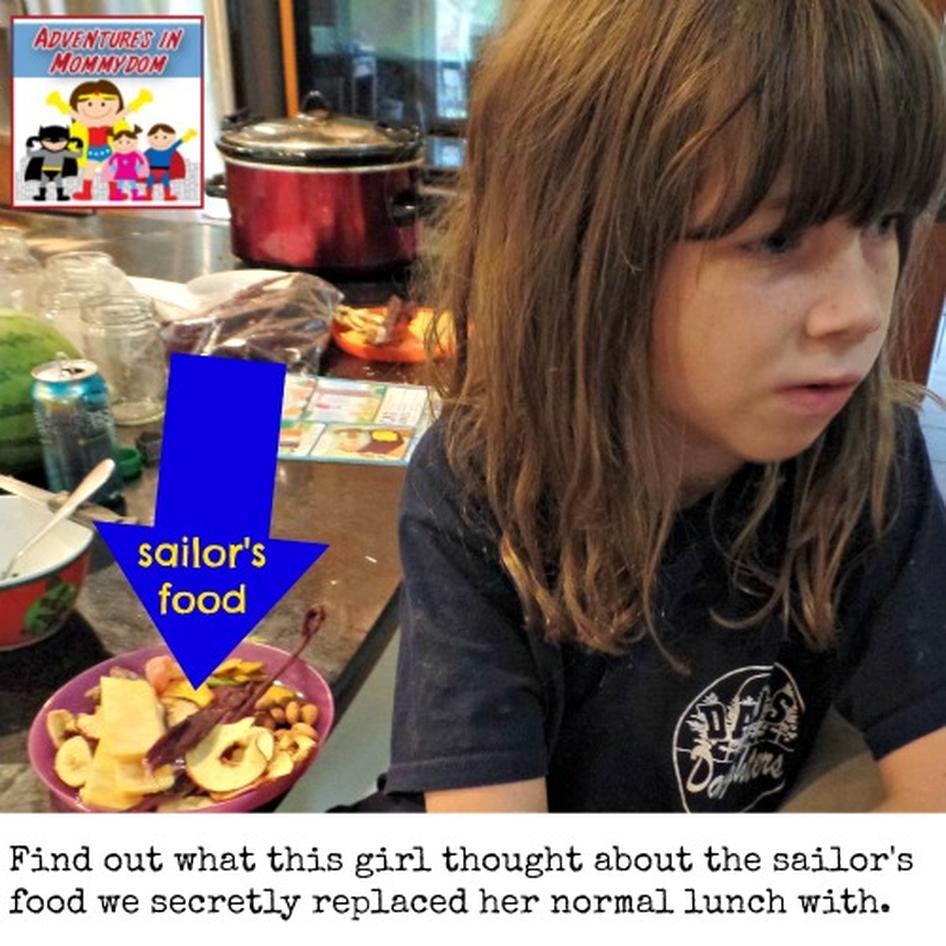
The phrase captures a moment of helplessness rather than denial. Food isn’t withheld by choice—it’s just that the galley becomes a hazardous zone for preparing meals.
Why Is Cooking Such a Challenge in Rough Seas?
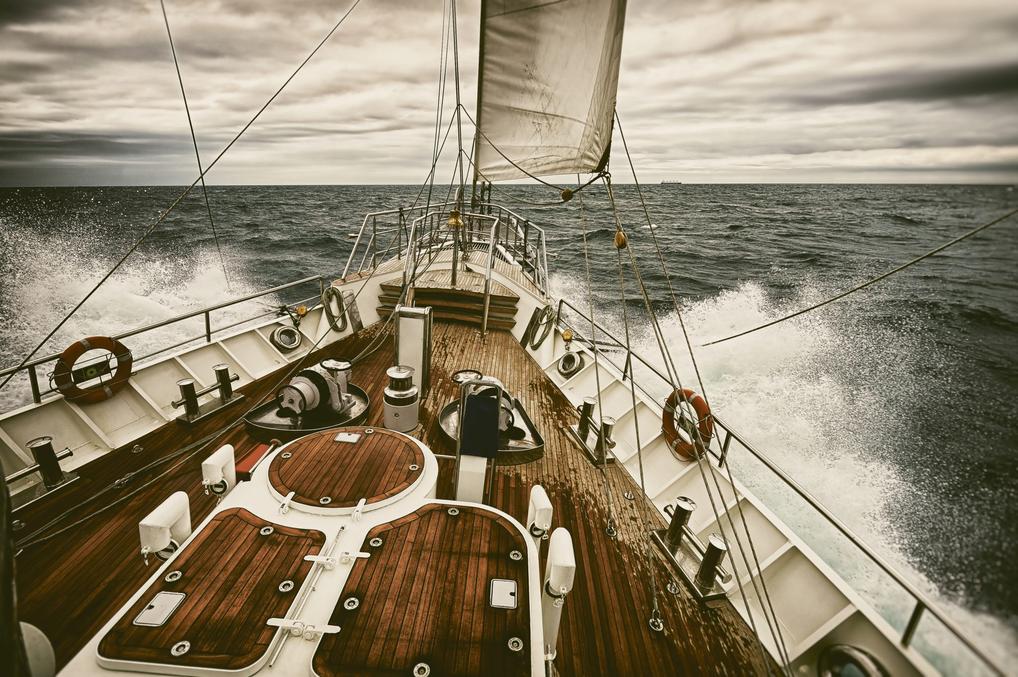
Imagine trying to keep a hot cup of coffee in your lap during a mid-ocean roller coaster ride. Water sloshes over pots, frying pans slide dangerously across stoves, and pans full of food can turn into flying projectiles. If you’ve tried stirring soup in a gently rocking boat, you already know this is no joke.
In a really rough sea, the kitchen—or galley—becomes a treacherous environment. Even standing upright requires concentration. A commercial mariner with 20 years’ experience recalls the difficulty vividly: everything in the galley wants to jump, slip, or fall.
In fact, the hazards aren’t limited to the kitchen. Showering, sleeping, even walking require bracing your body against shifting walls and floors. Sometimes, sailors must sleep on the floor to avoid being tossed from their bunks while waves hit the ship’s hull. The whole vessel feels like an elevator constantly moving up and down many floors in a short time. That’s rough.
Does Rough Weather Mean Going Without Food?
Not exactly. While rough seas might delay meal preparation, it doesn’t mean starvation or punishment. Sailors might rely on pre-prepared food or grab whatever can be safely handed out. The cook simply can’t operate the stove or oven safely when the ship pitches wildly. So instructions like “too rough to feed ya” serve to warn crew members that they’ll have to wait until the sea calms, or grab a quick snack instead.
In this light, the lyric paints a picture of the gritty reality at sea rather than dramatizing the denial. The crew’s welfare remains a concern, but nature sometimes wins the battle for care and feeding.
Why Don’t Commercial Ships Have Better Stability?
Modern ships use several rolling mitigation technologies. These include automated ballast systems, flume tanks, rolling chocks, and course corrections aimed at reducing the violent rocking of a ship. However, these systems are expensive and rarely found on typical commercial cargo ships.
Military or specialized vessels may use them more frequently, but most cargo ships accept a certain amount of roll and compensate by adjusting sailing tactics. So, rough seas are still a big factor in maritime life for the majority of seafarers.
Does This Mean Food Happens Eventually?
Almost always, yes. Once conditions improve or the ship changes course, the cook can safely prepare hot meals again. The crew will eat as much as they need, often eagerly. Being hungry during a storm is hardly the issue—the main challenge is safety, both for the crew and the cook.
In some extreme instances, the crew may survive on cold, non-perishable food—think canned goods or snacks—until the galley becomes functional again.
What Can We Learn from This Lyric?
The lyric reminds us how grueling and unpredictable maritime life is. It’s not just heroics or tragic loss; it’s everyday challenges faced by the crew—feeding themselves, staying safe, and sticking together.
It’s easy to romanticize the sailor’s life. But even something as simple as “getting fed” depends on balance, timing, and plain old good luck. While fishing boats and small vessels might find it even harder to manage during storms, large ships struggle as well. Preparing food when water sloshes over everything makes feeding the crew a moment-by-moment gamble.
In Conclusion: Would Sailors Be Denied Food in Rough Weather?
Simply put, no. The cook’s warning means the sea is too rough to prepare a proper meal safely, not that food is being withheld intentionally. The lyric captures a harsh slice of maritime reality—one where the elements challenge even basic human needs. In these moments, sailors rely on patience, resilience, and whatever quick snacks they can manage.
“The old cook came on deck sayin’ ‘Fellas, it’s too rough to feed ya’” is less about hunger and more about respect for the sea’s power, a brief pause in the grind of survival at sea.
So next time you listen to that song, picture the cook, clinging to his kitchen with wild waves tossing his pots, a hint of humor in his voice because he knows that one way or another, the crew will eat—as soon as nature lets him.
